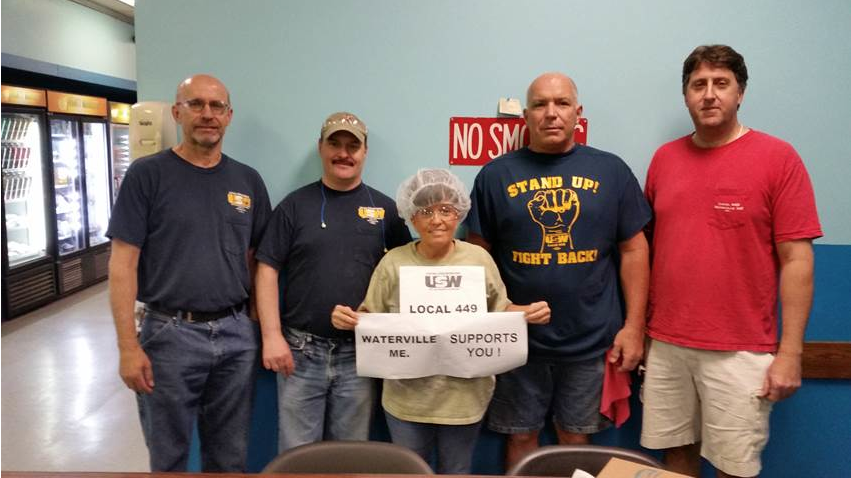16 June, 2014Workers at Huhtamaki’s plant in Commerce, California, have asked management to “engage in a good faith dialogue” about working conditions in the plant. Temperatures can reach 100 degrees F or more, and workers are subject to a disciplinary system they say management uses “only as a tool to punish workers.”
The letter they presented to Huhtamaki’s plant managers also urged those managers to refrain from retaliating against the workers for their actions.
Said one worker:
"We knew that when we tried to talk to management about these issues individually, nothing changed. When we all got together we realized that if we all asked for changes together, there was no way they could ignore us. All we want is for them to treat us the same way they treat their union employees."
While the Huhtamaki workers in Commerce do not have a union voice, they do have union support from the workers at the six Huhtamaki facilities where workers enjoy the protection of a union contract. Five are IndustriALL Global Union affiliate United Steelworkers (USW) bargaining units and the other is represented by the Retail, Wholesale and Department Store Workers/UFCW (RWDSU/UFCW).
Many of the company’s other plants around the globe in the United Kingdom, Brazil, New Zealand and elsewhere are also unionized. Those union workers have been sending messages and photos of support to their nonunion Huhtamaki brothers and sisters in California.
The USW Huhtamaki Council also sent a letter supporting the workers.
Another worker said:
"It's really great knowing that other Huhtamaki workers around the country are supporting us today. I feel like the company will have to listen to us now."
More than 3,500 people work in one of the 21 plants of the global Finnish packaging and paper products corporation in the United States.
Huhtamaki is expanding its U.S. operations and a new report from the USW and the AFL-CIO reveals how the company’s expansion strategy in the United States is creating low-wage, precarious employment while threatening the job security and living standards of unionized employees.
The report details how Huhtamaki is leveraging local and state subsidies and tax breaks and instead of providing good jobs for the communities it expands into, the company is using an increasingly low-wage, minimal benefits temporary workforce. It also outlines cutbacks in occupational safety and health spending that are impacting workers in the plants, Huhtamaki’s use of a union-busting law firm to combat workers’ initiatives to organize and its moving of product lines to its nonunion plants.


